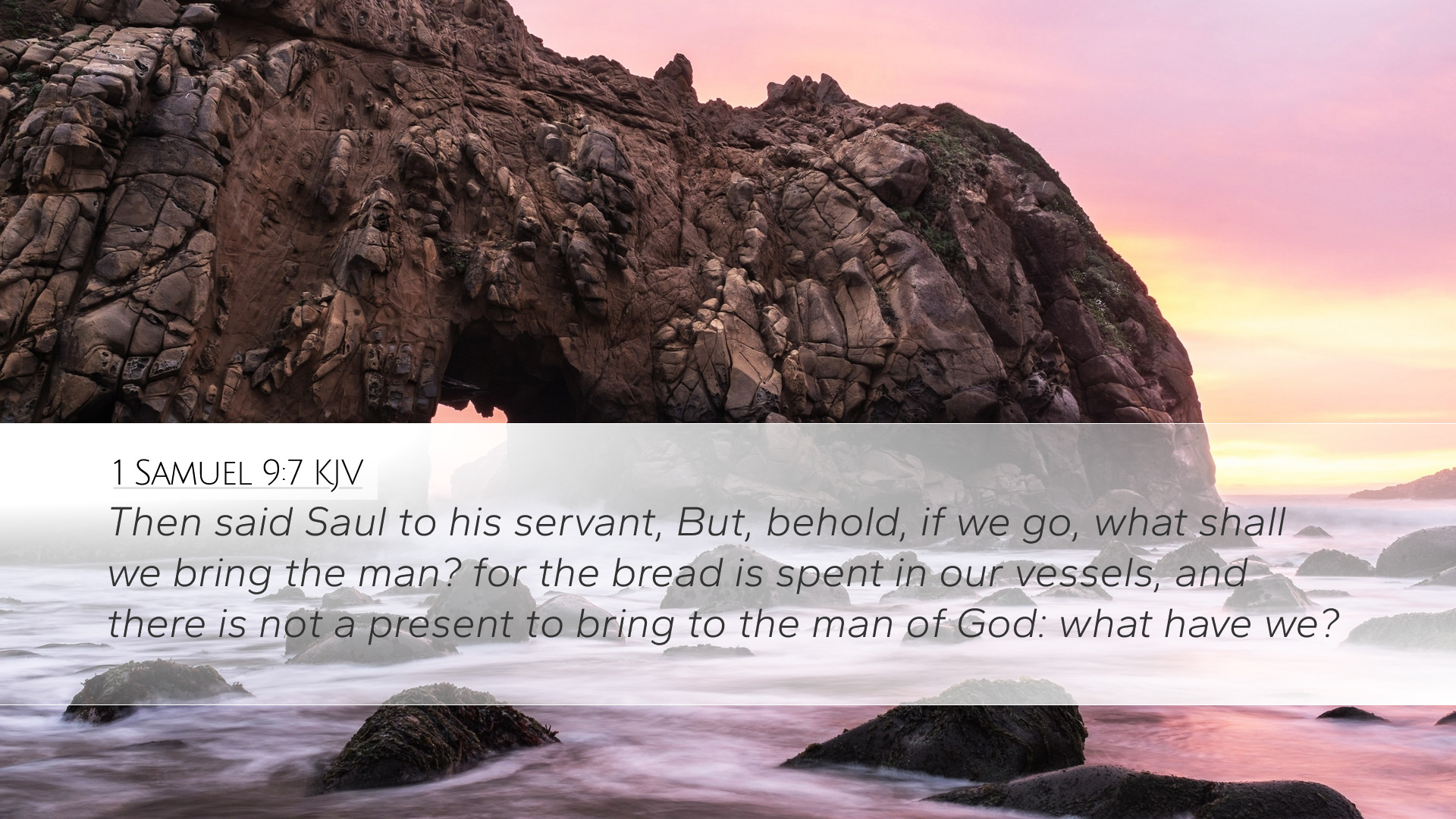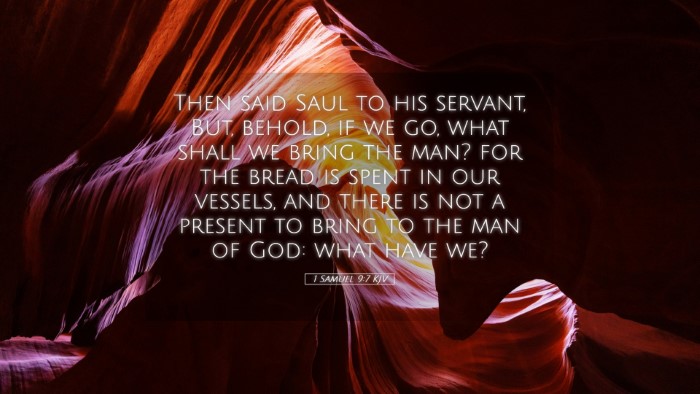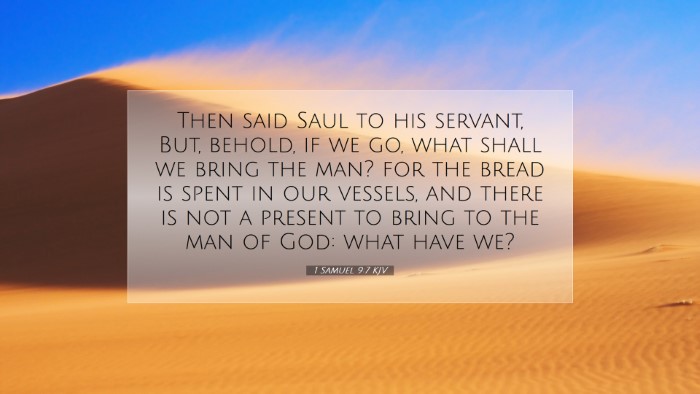Commentary on 1 Samuel 9:7
Introduction
1 Samuel 9:7 states: "Then Saul said to his servant, 'But if we do go, what can we give the man? For the bread in our sacks is gone, and there is no gift to bring to the man of God. What do we have?'" This verse occurs within the narrative where Saul and his servant are searching for lost donkeys, and it reveals not just the situation they are in, but also gives insight into the character of Saul and the cultural context surrounding prophets in Israel.
The Context of Seeking Guidance
Here, Saul's desire to consult a man of God shows a deep cultural respect for divine guidance. As noted by Matthew Henry, this scene illustrates the importance placed on seeking a prophet during times of uncertainty. It portrays a transition in Israel from a period led by judges to one seeking kingship, where guidance from God was paramount.
- Respect for the Prophet: Saul’s discussion with his servant reveals the typical protocol in approaching a man of God. The servant's suggestion to seek out the prophet indicates the reverence held for prophets during this period, reinforcing their role as intermediaries between God and the people.
- Cultural Significance of Gifts: As highlighted by Albert Barnes, it was customary to present a gift when approaching a prophet. This reflects an understanding of the reciprocal nature of relationships in ancient Near Eastern cultures, where honor and respect were shown through offerings.
The Provision of God
The anxiety reflected in Saul's words—having no gift to provide—can be interpreted through the lens of God's provision. Adam Clarke emphasizes that while Saul lacked material resources, he was unaware of the divine orchestration directing his path. This moment can be seen as a foreshadowing of how God prepares and provides for His chosen leaders.
Character Study of Saul
Saul's character is emerging, displaying elements of humility and possibly insecurity. His immediate concern over not having a gift indicates an inherent respect for the prophetic office, as well as a recognition of his own deficiencies. Matthew Henry states that such humility could be seen as a preparation for Saul’s eventual royal responsibilities.
- Humility and Recognition: This moment serves as a poignant reminder that true leadership requires a sense of humility. Saul's willingness to acknowledge what he does not have could be seen as a strength, preparing him for greater leadership challenges.
- Divine Intentions: The conversation illustrates God's providence in leading Saul to the prophet without the surplus that he deemed necessary. This reflects that God often works with our insufficiencies for His divine purposes.
Theological Implications
This verse opens a dialogue on the biblical understanding of how God communicates through His appointed leaders. As Albert Barnes discusses, the prophetic role in Israel was rooted in divinely appointed authority, and God’s guidance always comes with the assurance of faith. Saul's initial hesitance raises questions about trust in divine provision—a crucial element for leaders.
Faith in Provision:
In moments of personal inadequacy, believers are reminded that God’s direction does not hinge on human resourcefulness. The sooner one realizes that in God’s plan every lack is accounted for, the more one can trust in His leading. This is echoed throughout the scripture, where God enables His servants not based on their material wealth, but upon their faithfulness and willingness to serve.
Application for Today’s Leaders
In contemporary ministry, leaders often grapple with feelings of inadequacy. The relational dynamic seen in Saul and his servant reminds us to surround ourselves with those who can provide counsel and support. Just as Saul sought wisdom in turbulent times, today’s leaders must also seek guidance—whether through Scripture, prayer, or the counsel of wise mentors.
- Building a Community: Like Saul, church leaders should foster a relationship with those who can aid in discernment. Emulating Saul's deferential attitude can pave the way for spiritual growth and development in faith.
- Prioritizing God’s Presence: It is critical for leaders to remember that ultimate guidance comes from the Lord. God often uses our limitations to drive us closer to reliance on Him, so we can trust Him in every area of our ministry.
Conclusion
1 Samuel 9:7 serves as a rich source of theological insight into the nature of divine guidance, the importance of humility, and the cultural expectations of leaders within Scripture. In looking at the interplay of Saul and his servant against the backdrop of their time, modern readers can glean significant lessons on leadership, faith, and the nature of God’s provision. Such insights remain essential for pastors, students, and all who desire to understand more profoundly the way God directs and prepares His servants for the tasks ahead.


